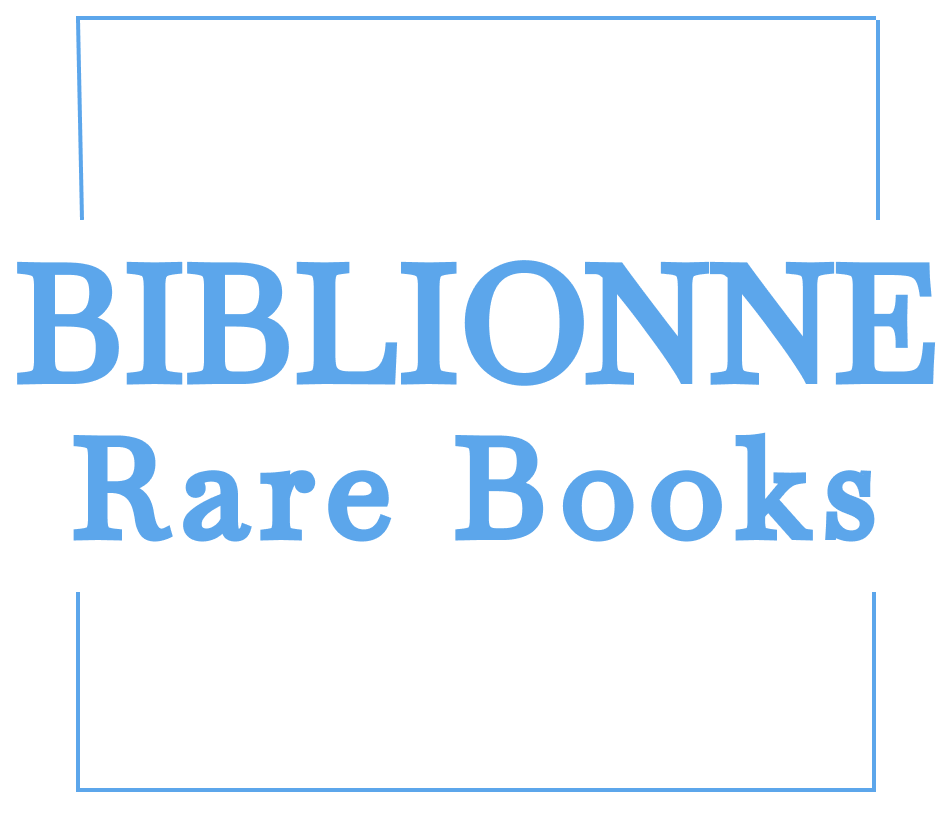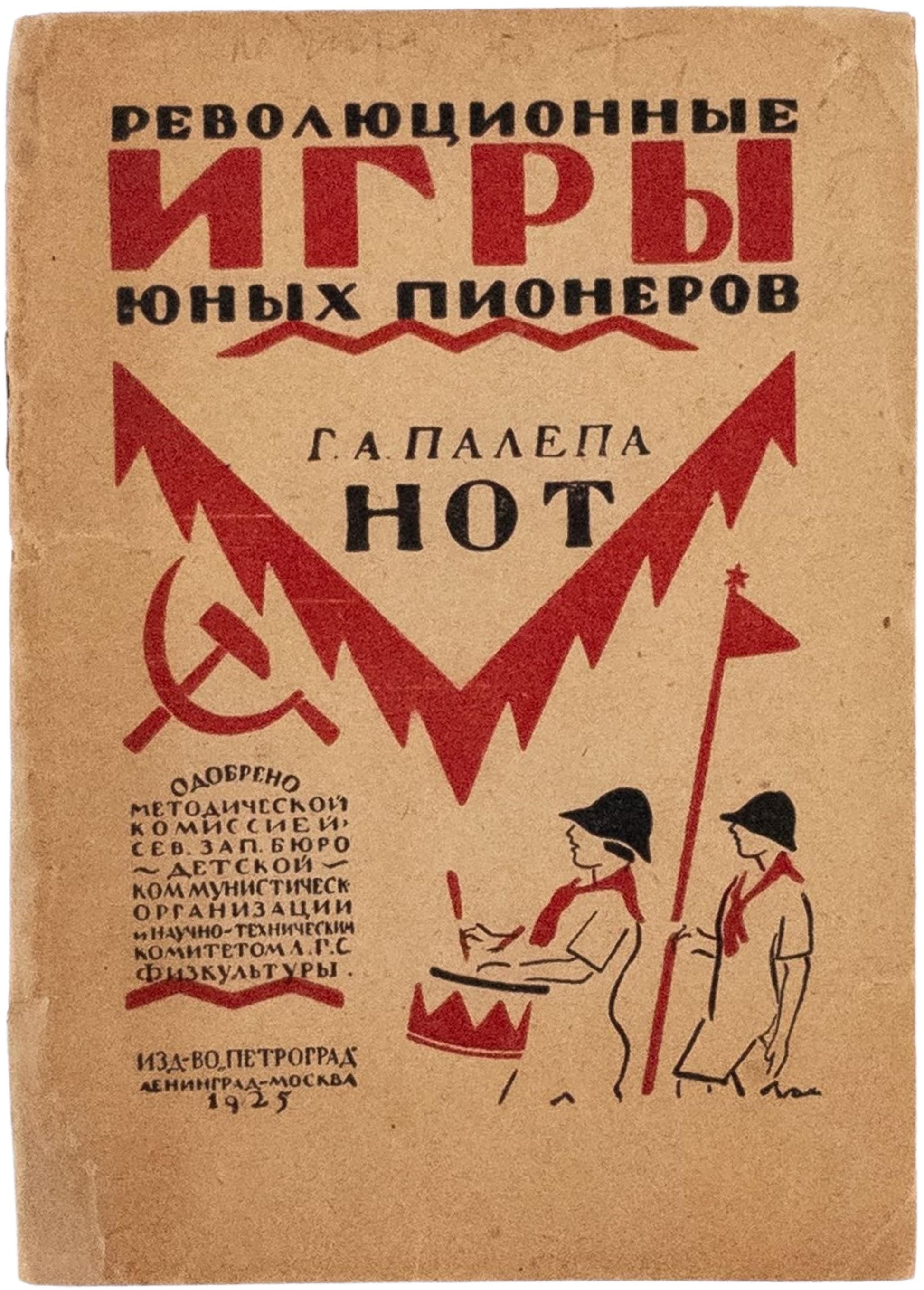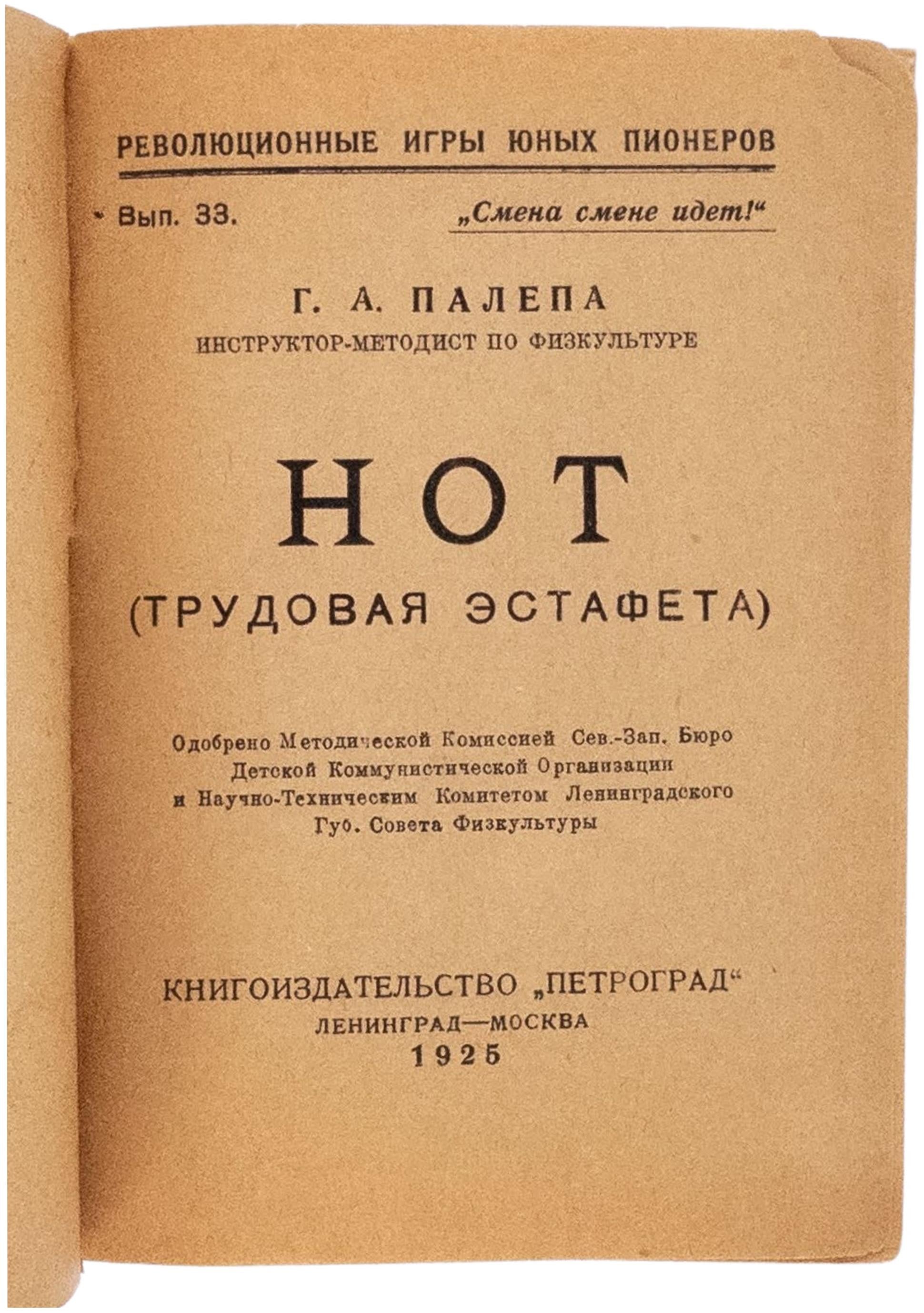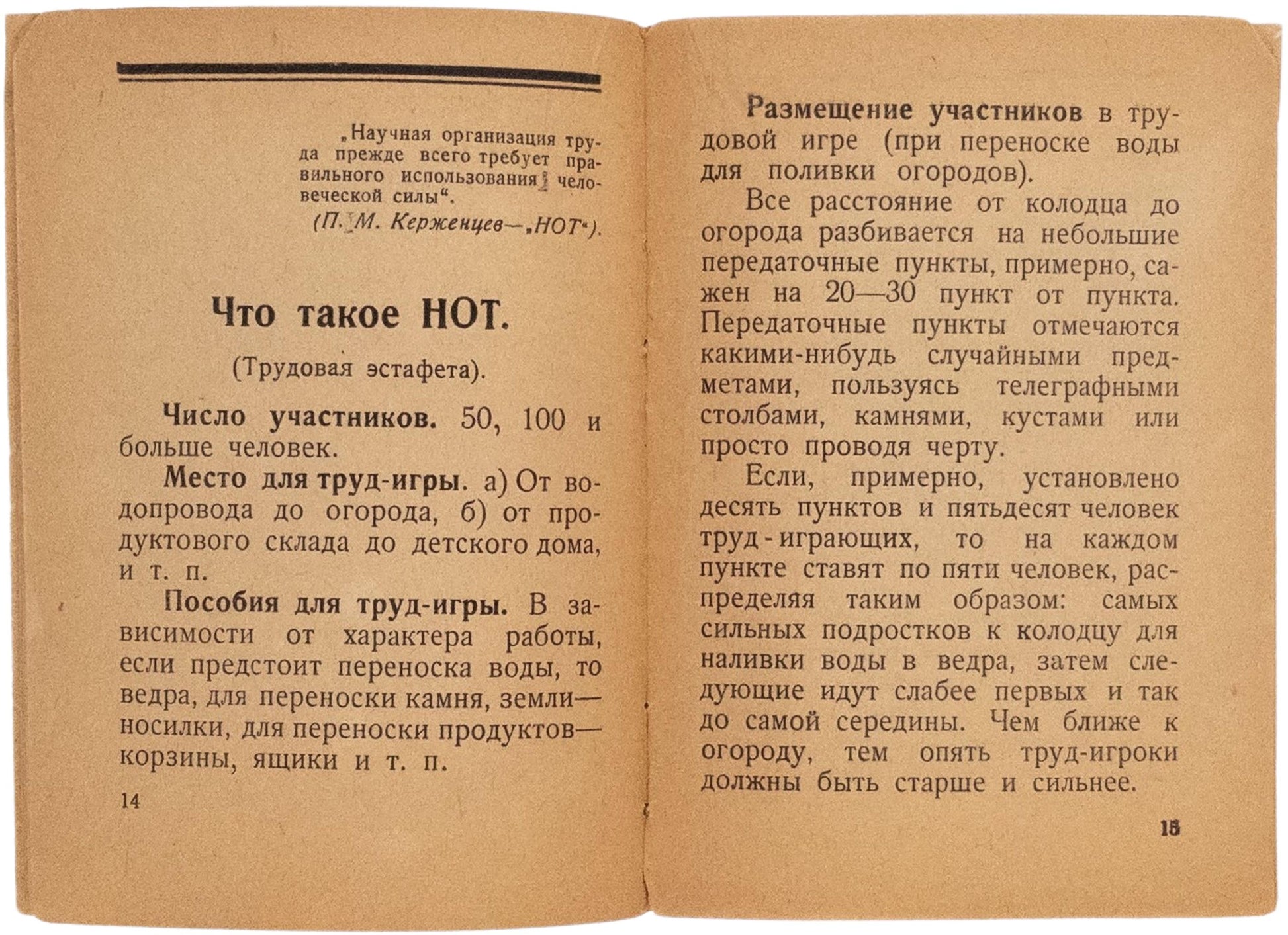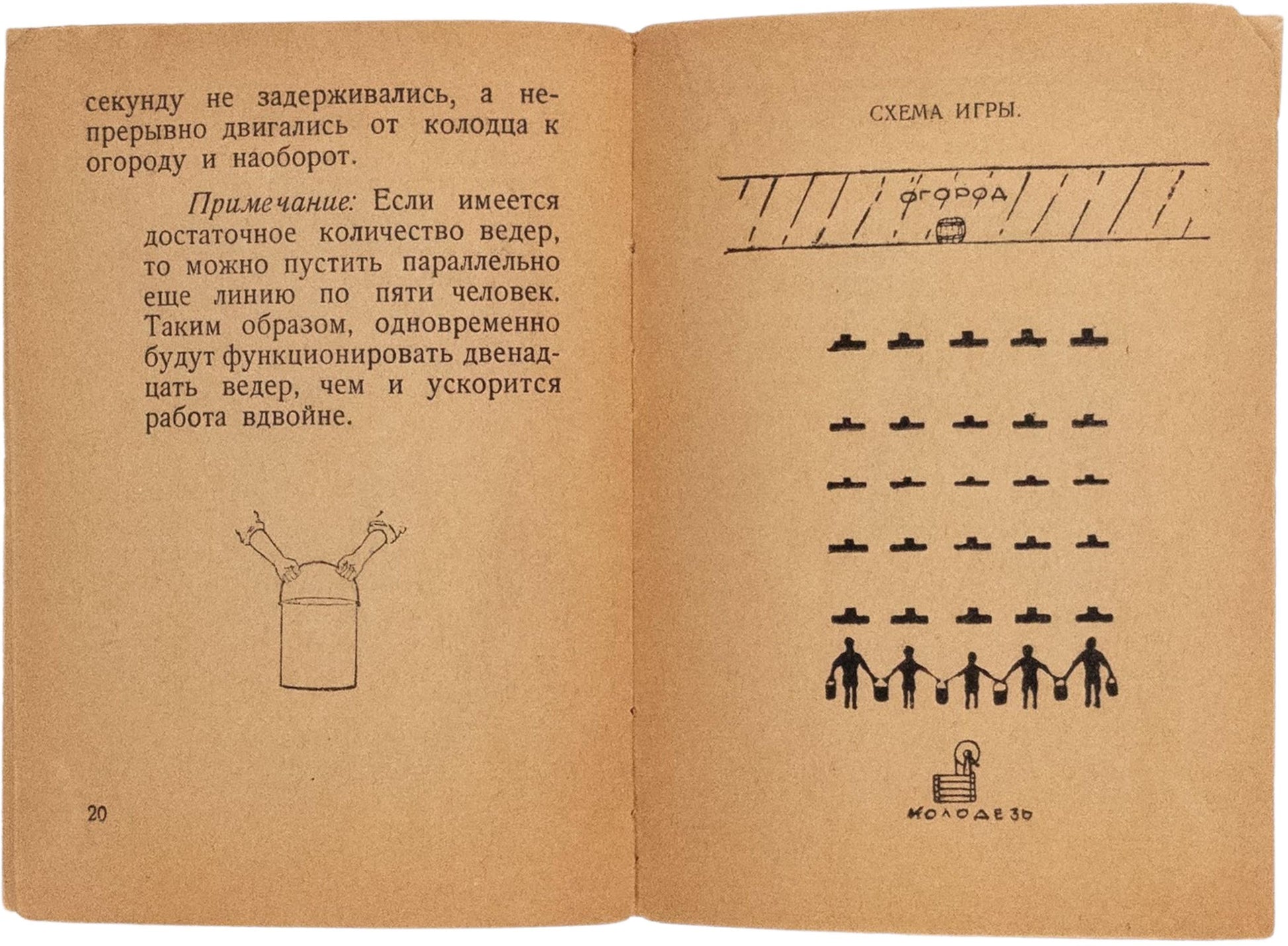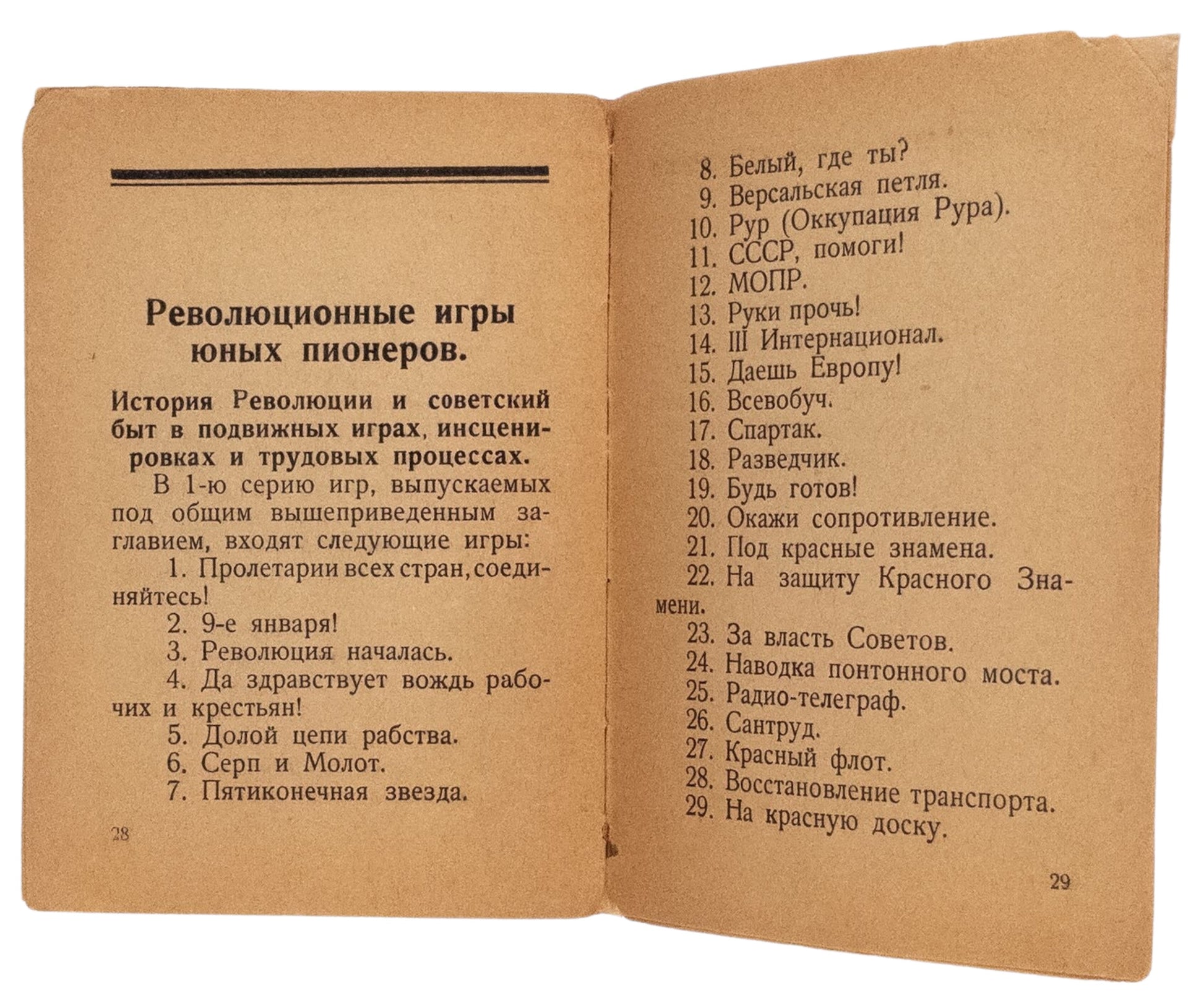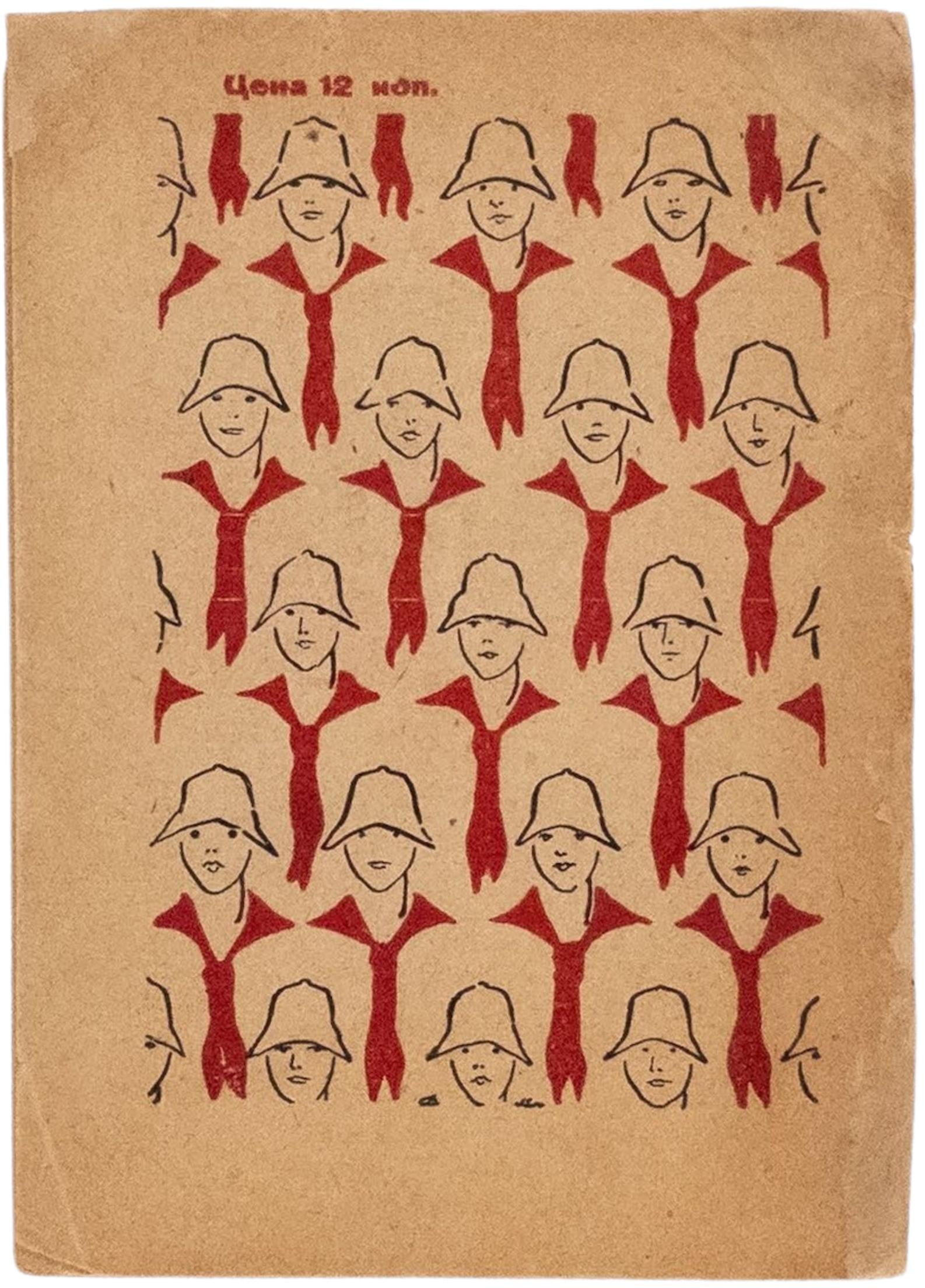Palepa, G.
NOT (Labor Relay). A rare book from a series of outdoor games promoting Soviet propaganda to children.
NOT (Labor Relay). A rare book from a series of outdoor games promoting Soviet propaganda to children.
Couldn't load pickup availability
Palepa, G. [NOT (Labor Relay)]. NOT (Trudovaia Estafeta).
Series [Revolutionary Games of Young Pioneers] Revoliutsionnye igry unykh pionerov, No 33.
Leningrad-Moskva, Izd-vo “Petrograd”, 1925.
16mo, 31, [1] pp., ill.
In original pictorial wrappers.
In good condition, restored along spine and with repair to cover edges, lightly rubbed, owner note to front cover and some pages.
A rare book from a series of outdoor games promoting Soviet propaganda to children. One of 12 000 copies published.
One notable example of such games was the series ‘Revolutionary Games of Young Pioneers’, first published in 1925. The series, consisting of approximately 40 issues, featured games designed to reinforce Soviet ideals. Each book contained one game, with the description of its rules preceded by a short story illustrating the historical or ideological basis of the plot—such as the centuries-old struggle of the working class, the defense of the USSR against external threats, and significant international events.
This particular issue, titled 'NOT' (an abbreviation for 'Scientific Organization of Labor'), draws on the studies of Aleksei Gastev (1882-1939), a key theorist of scientific labor management in Soviet Russia and the founder and director of the Central Institute of Labour, who was arrested in 1938 and lately executed. The game (sometimes called a 'labor game') is designed to engage children in labor-related activities while applying a scientific approach, such as carrying various items (water, rocks, soil, or goods) in a relay format, emphasizing its importance, particularly for children in orphanages. It was assumed that by learning to work through this scientific approach to labor, children would apply these principles in their adult lives—in factories, the army, agriculture, and beyond.
The book's author was Grigorii Palepa (1886–1976), an athlete and a member of the Russian Olympic team at the 1912 Summer Olympics in Stockholm. During participating in the Great War, he was captured and spent several years in a German prison camp. Upon his return in 1918, he became a graphic artist and a physical education instructor-methodologist.
At the end of this issue, a list of other games from the series is published.
We couldn’t trace any copy of this edition in the USA or European libraries via OCLC.






